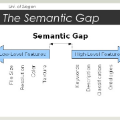Medical image segmentation is a critical task that plays a vital role in diagnosis, treatment planning, and disease monitoring. Accurate segmentation of anatomical structures and abnormalities from medical images can aid in the early detection and treatment of various diseases. In this paper, we address the local feature deficiency of the Transformer model by carefully re-designing the self-attention map to produce accurate dense prediction in medical images. To this end, we first apply the wavelet transformation to decompose the input feature map into low-frequency (LF) and high-frequency (HF) subbands. The LF segment is associated with coarse-grained features while the HF components preserve fine-grained features such as texture and edge information. Next, we reformulate the self-attention operation using the efficient Transformer to perform both spatial and context attention on top of the frequency representation. Furthermore, to intensify the importance of the boundary information, we impose an additional attention map by creating a Gaussian pyramid on top of the HF components. Moreover, we propose a multi-scale context enhancement block within skip connections to adaptively model inter-scale dependencies to overcome the semantic gap among stages of the encoder and decoder modules. Throughout comprehensive experiments, we demonstrate the effectiveness of our strategy on multi-organ and skin lesion segmentation benchmarks. The implementation code will be available upon acceptance. \href{https://github.com/mindflow-institue/WaveFormer}{GitHub}.
翻译:暂无翻译




